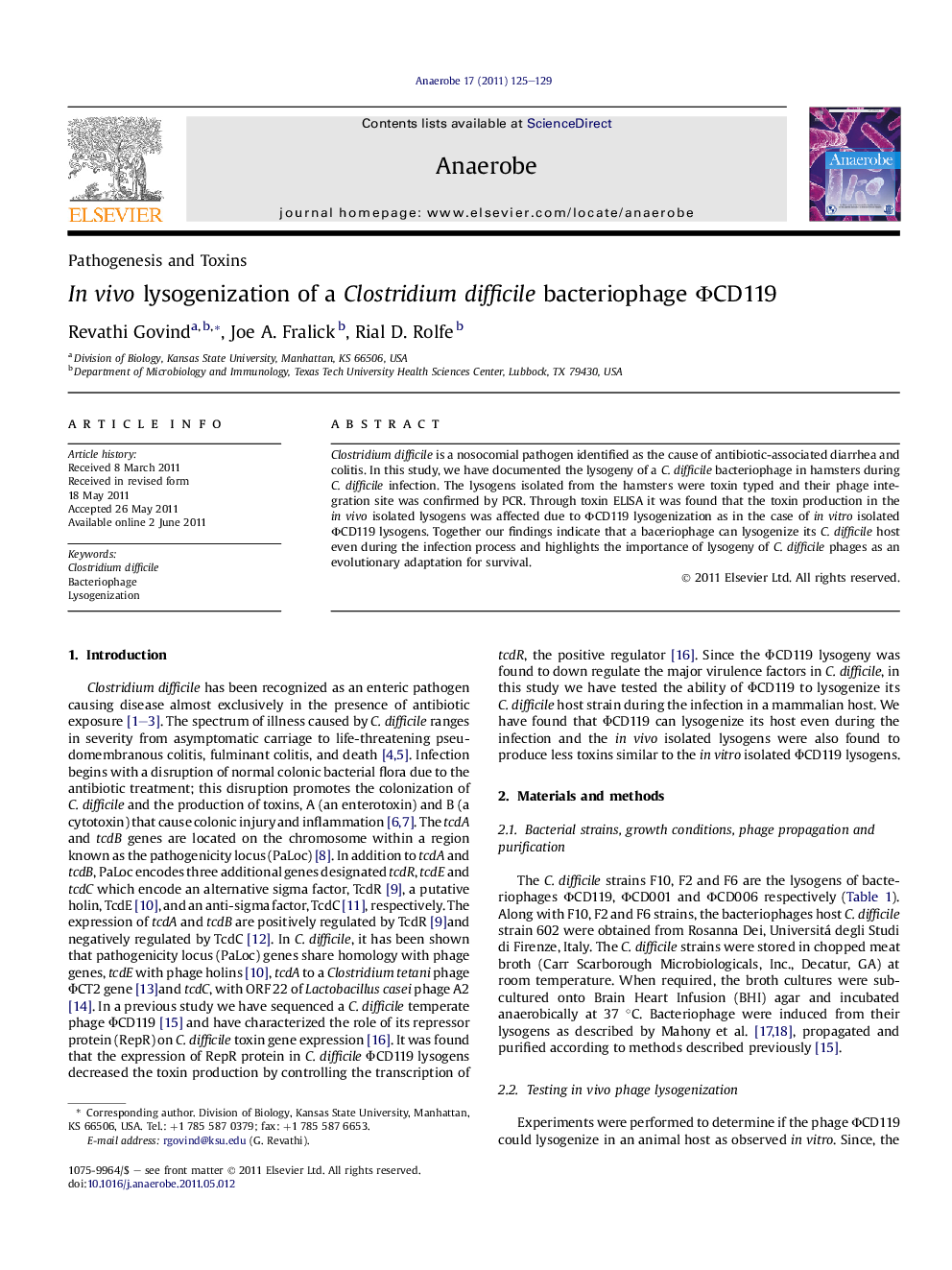| Article ID | Journal | Published Year | Pages | File Type |
|---|---|---|---|---|
| 3395526 | Anaerobe | 2011 | 5 Pages |
Clostridium difficile is a nosocomial pathogen identified as the cause of antibiotic-associated diarrhea and colitis. In this study, we have documented the lysogeny of a C. difficile bacteriophage in hamsters during C. difficile infection. The lysogens isolated from the hamsters were toxin typed and their phage integration site was confirmed by PCR. Through toxin ELISA it was found that the toxin production in the in vivo isolated lysogens was affected due to ФCD119 lysogenization as in the case of in vitro isolated ФCD119 lysogens. Together our findings indicate that a baceriophage can lysogenize its C. difficile host even during the infection process and highlights the importance of lysogeny of C. difficile phages as an evolutionary adaptation for survival.
► Phage CD119 lysogenized C. difficile during its infection in a mammalian host. ► Phage CD119 integrates in between genes CD2963 and CD2964. ► Lysogenized C. difficile strains produced less toxins.
